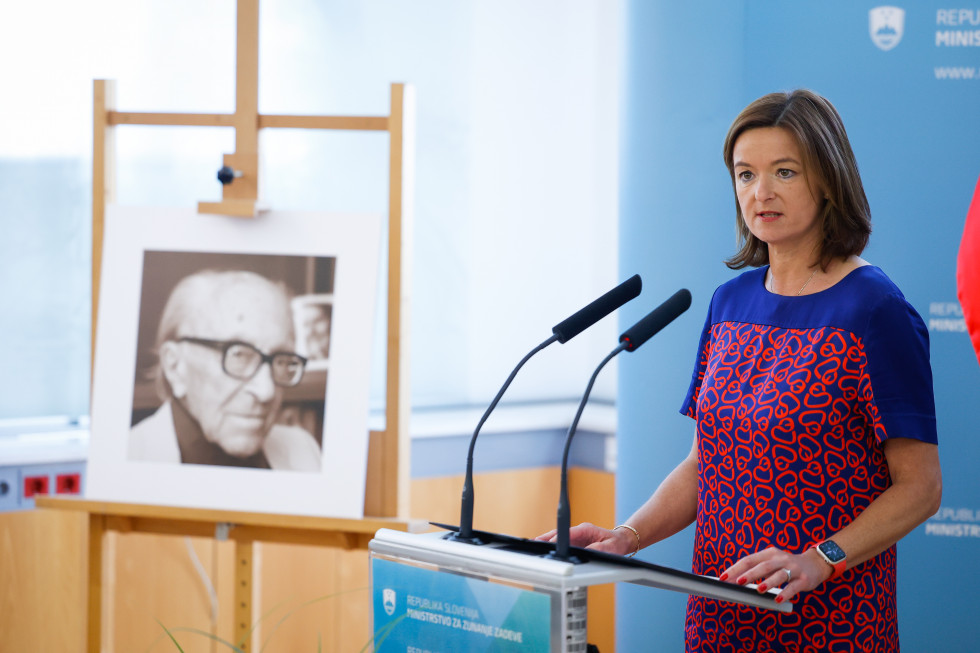In tribute to the memory of Boris Pahor
- Ministry of Foreign Affairs

Minister Fajon paying tribute to Boris Pahor | Author STA/Anže Malovrh
“On the very day I presented my vision of the future Slovenian foreign policy before the National Assembly, I was saddened to learn of the demise of Boris Pahor. He was a renowned author, chronicler, thinker, and witness, a man with a great heart and a true European, who fought against fascism and all forms of totalitarianisms,” stated Minister of Foreign Affairs Tanja Fajon, adding that the world had lost one of the last witnesses of the history of the 20th century.
Boris Pahor sincerely believed in true understanding between nations and cultures. He was indeed an ambassador – not only of the Slovenian and Italian nations, but an ambassador of memory and the past, and above all of hope for the future. He is one of the most widely translated authors, known around the world, especially in Italy and France, before he was finally recognised in Slovenia. He often met with thinkers of the highest calibre, including Imre Kertesz and Stéphan Hessel.
He was one the last giants of European humanism. As he turned 100, he was awarded the European Citizens’ Prize by the European Parliament at the initiative of eight MEPs from Slovenia, for his contribution to mutual understanding and the fostering of ties among EU countries and for strengthening the European spirit.
Upon his death, the Council of Slovenian Organisations described Boris Pahor as the first ambassador of Slovenians in Italy. He was delighted when the National Hall was returned to the Slovenian minority, after he had witnessed it burn to the ground first hand as a child. This experience deeply wounded his nationalist feelings. For him, Slovenianhood could only persevere through strong national consciousness and language, and he was always a staunch supporter of the Slovenian minority in Italy, which was recognised by the highest Italian officials.
He persistently warned, even at the highest political levels, of the devastating effects of fascism. Building on his life experience, his observations served as a mirror to politics, cautioning especially the younger generations against the dire consequences of totalitarian regimes. Boris Pahor turned his horrifying internment experience into testimonial novels, often published in several editions and translated into a number of languages. When the highest accolades of both Slovenia and Italy were bestowed on him, he dedicated the awards to all those who never returned from the concentration camps.
“His life story and relentless fight for Slovenianhood make him a true inspiration and an example to follow, especially when it comes to diplomatic endeavours for Slovenian interests in these unpredictable times, of the like he witnessed himself,” concluded the Minister, underscoring how honoured she was to name one of the ministry’s halls after Boris Pahor. “I sincerely hope that all encounters in this hall reflect the greatness of his spirit and mind.”
The second address was given by Pahor’s long-time friend Evgen Bavčar. “For me and many other Slovenians, Boris Pahor remains the symbolic guarantee of the ethical stance of Slovenianhood,” he told the participants, expressing the wish that the ideas shared by Boris Pahor would live on within the Slovenian diplomatic service, too.

